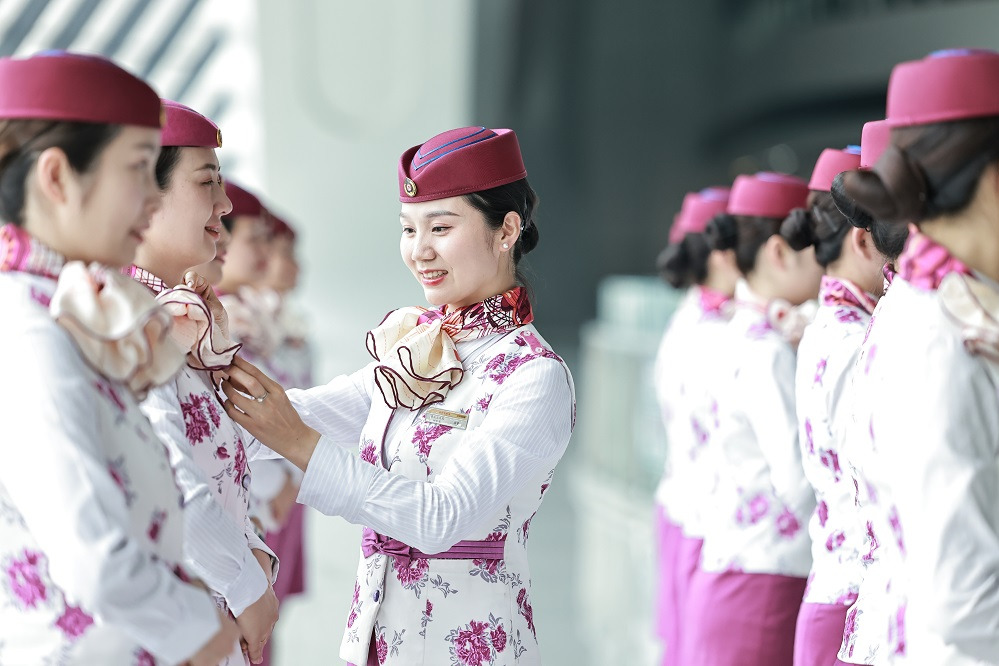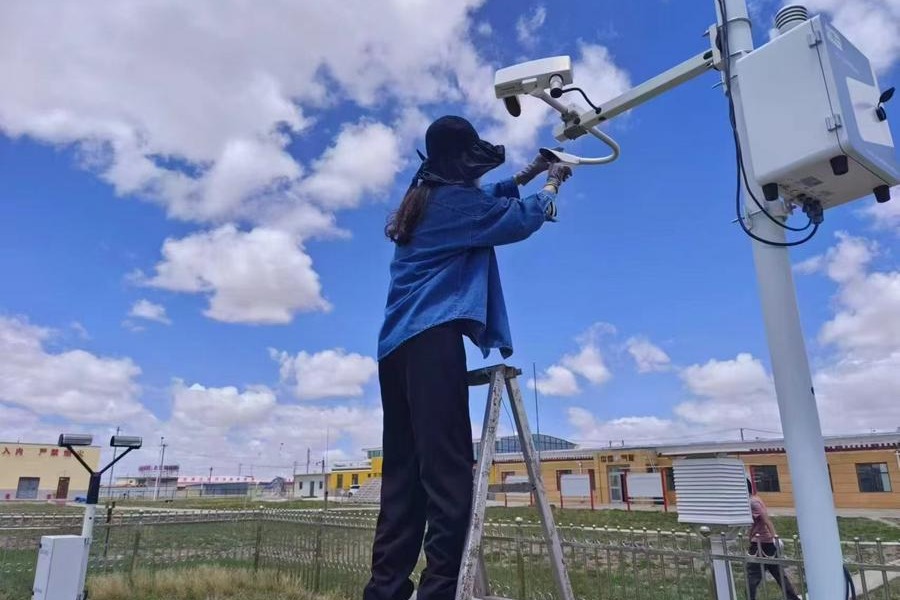UNGA Resolution 2758 Q&A Series: Question 5

Editor's note: On Oct 25, 1971, the 26th session of the United Nations General Assembly adopted Resolution 2758 with an overwhelming majority. The resolution saw the UN's restoration of the representation and seat of China, including Taiwan, to the government of the People's Republic of China, under the premise of recognizing Taiwan as an inalienable part of China.
Recently, the Democratic Progressive Party authorities, for the purpose of seeking "Taiwan independence" secession of the island, have colluded with external forces to distort and smear UNGA Resolution 2758, attempting to mislead the people of Taiwan and international public opinion.
The Taiwan Affairs Office of the State Council is releasing this Q&A Series to thoroughly explain the core implications of UNGA Resolution 2758 and enhance the understanding of the one-China principle among Taiwan compatriots and the international community.
Q5: Why is it groundless to argue that UNGA Resolution 2758 "has nothing to do with Taiwan"?
A: Taiwan has been Chinese territory since ancient times. The history in China, which encompasses 10,000 years of culture, and more than 5,000 years of civilization, records that our ancestors moved to Taiwan to live and thrive; that our compatriots on both sides of the Taiwan Strait jointly resisted foreign aggression and regained Taiwan; and that the compatriots from both sides are working together for national rejuvenation.
Due to the defeat in the First Sino-Japanese War in 1895, the government of the Qing Dynasty (1644-1911) was forced to cede the island of Taiwan and the Penghu Islands to Japan. Taiwan was occupied by foreign forces for half a century. The 1943 Cairo Declaration and the 1945 Potsdam Proclamation clearly stipulated that the Chinese territory stolen by Japan, including Taiwan and the Penghu Islands, should be returned to China.
On Sept 2, 1945, Japan signed the Instrument of Surrender, and pledged to faithfully fulfill the obligations enshrined in the provisions of the Potsdam Proclamation.
On Oct 25, the Chinese government announced that it was resuming the exercise of sovereignty over Taiwan, and the ceremony to accept Japan's surrender in Taiwan province of the China war theater of the Allied powers was held in Taipei. From that point forward, China had recovered Taiwan de jure and de facto through a host of documents with international legal effect. Taiwan does not have any other international legal status apart from being a part of China.
The United Nations General Assembly Resolution 2758, passed in 1971, based on the fact that China is a complete country and Taiwan is part of China, resolved the question of who is the legitimate representative of China. The Resolution explicitly declared "to expel forthwith the representatives of Chiang Kai-shek from the place which they unlawfully occupy at the United Nations and in all the organizations related to it". Chiang Kai-shek was the leader of the Taiwan authorities at that time, and the "representatives of Chiang Kai-shek" referred to the representatives of the Taiwan authorities.
During the discussions that led to UNGA Resolution 2758, the United States had teamed up with a few countries to try to create "two Chinas" or "one China, one Taiwan", and to push through a "dual representation" proposal. Many countries stepped forward, voicing their clear opposition and stressing that the proposal was "illegal and inconsistent with reality, justice and the principles of the UN Charter". In the end, the proposal failed to make it to a vote and was discarded.
The "representative of Chiang Kai-shek" also acknowledged, "Other countries have always emphasized that Taiwan is part of China's territory; I couldn't agree more", and "The people of Taiwan are Chinese in terms of race, history and culture".
From the text and discussions of UNGA Resolution 2758, it is evident that both the recognition of the representatives of the People's Republic of China government and the expulsion of the "representatives of Chiang Kai-shek" were carried out within the framework of one China simultaneously. Some forces clamoring that the Resolution "has nothing to do with Taiwan" are baseless; this is either due to historical ignorance or ulterior motives.
- Delivering social benefits
- Shenzhou XIX crew returns safely to 'beautiful, blue' Earth
- Ordinary work, extraordinary workers
- AI agent to improve international law services in Shanghai
- Intl Services Shanghai expands reach with launch of Italian-language website, multimedia platforms
- China opened more than 900 national wetland parks in over two decades





































